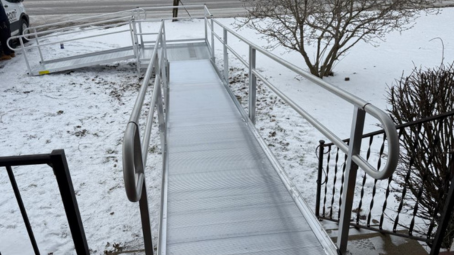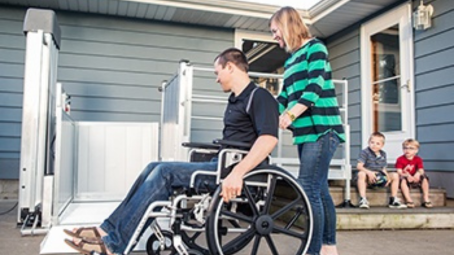Where Should I Buy a Wheelchair Ramp?
Posted on by Eric Rubel
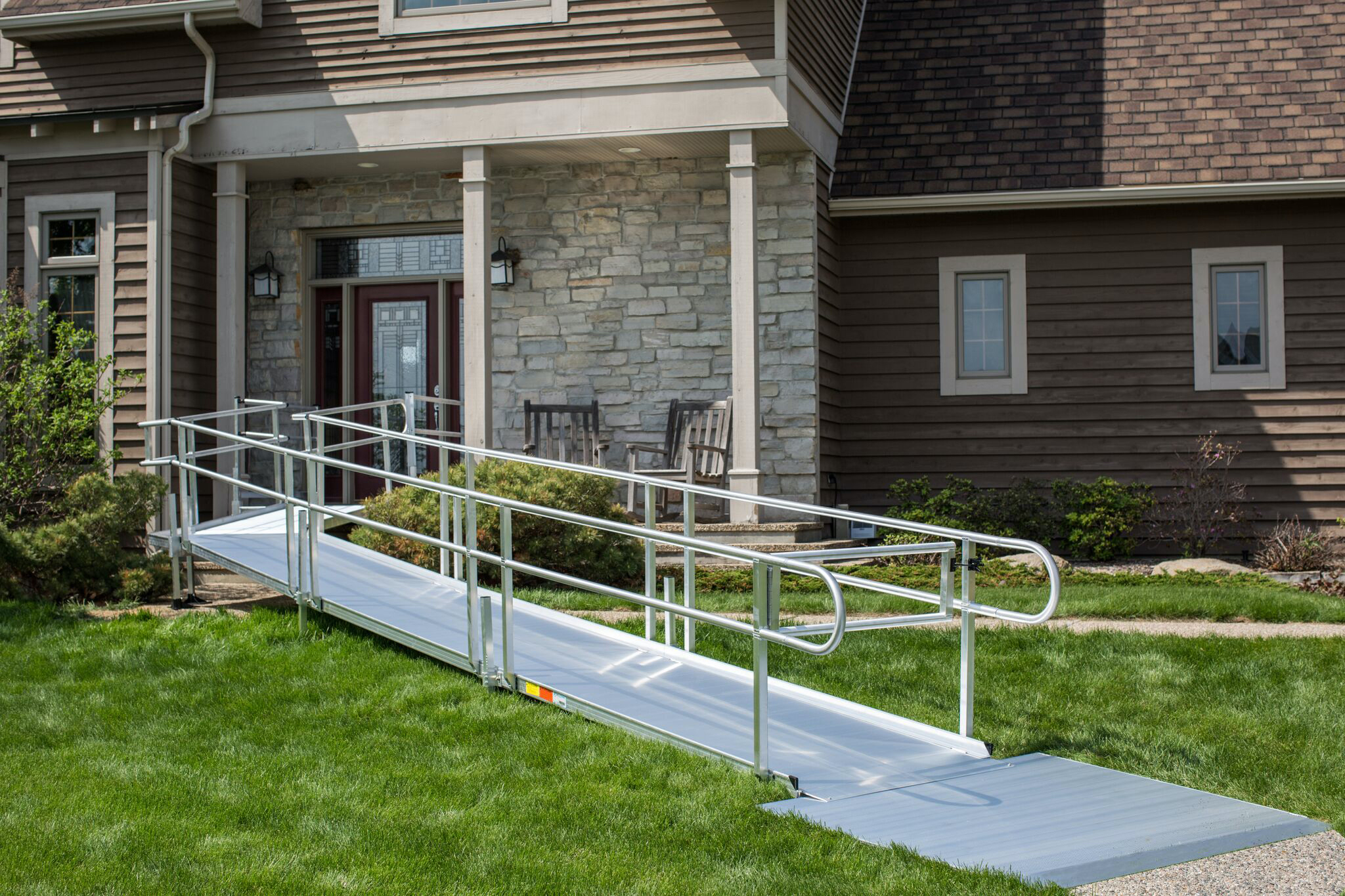
When a family member experiences a change in mobility, a wheelchair ramp can be a great option for helping them get in and out of the house. Aluminum wheelchair ramps are simpler, more convenient, and less expensive than many other types of wheelchair ramps or alternative solutions, and they can be used by everyone regardless of mobility level. Simply do an online search for “where can I buy a wheelchair ramp,” and you’ll find that you can even have one shipped to your home within just a few days—but is this option can often be too good to be true.
Buying a Wheelchair Ramp Online vs. Local Provider / Professional Installer
Unfortunately, buying a wheelchair ramp from an online retailer is not as easy as it seems. There are many factors to consider as you measure your steps and select a product, and even a simple ramp installation can quickly become complicated. Not surprisingly, wheelchair ramps purchased online for DIY installation have high rates of returns.
If you’ve been looking for a wheelchair ramp online, here are some questions to consider as you evaluate each product. If you’re not able to answer “YES” to each question on your own, you might be better off calling a professional wheelchair ramp provider and installer.
Is This Wheelchair Ramp Right for My Needs?
With a wide selection of wheelchair ramps available at your fingertips, you can compare the specifications of each product—but this can be difficult if you’re feeling the pressure of a limited budget or a tight timeline (such as when a spouse is about to be discharged from the hospital after a surgery).
The cost of a wheelchair ramp is an important factor in your decision, but it can’t be the only factor. For instance, many people have told us about workarounds they’ve tried in place of a wheelchair ramp; most frequently, they’ve bought a loading ramp designed for getting a ride-on lawn mower or ATV in and out of a truck bed. This type of ramp has no side rails, making it unsafe for occupied use, and it may not be built for daily, long-term use. Even if the ramp is transversing only a few steps, a person in a wheelchair or powerchair could be seriously injured if they go off track.
Even among wheelchair ramps designed for residential use, a loved one’s mobility level and the type of mobility device used can make a big difference. An electric wheelchair typically weighs up to 150 pounds, but it’s not unheard of for heavy-duty models to weigh 300 pounds or more. With the weight of the user, plus the family member or caregiver pushing the wheelchair, it may add up to more weight than a light, portable ramp can withstand. Likewise, some wheelchair ramp configurations can be difficult for users to navigate independently in full-size powerchairs.
The best way to ensure that a wheelchair ramp is right for your needs is to talk to an accessibility expert—but in this case, a chatbot just won’t do. When you work with an accessibility solutions company like Lifeway Mobility, a professional will evaluate your space, listen to your mobility needs, and provide trustworthy recommendations to meet those needs.
Is This Wheelchair Ramp Good Quality & Will it Last?
To keep your loved one safe, it’s very important to consider the quality and type of wheelchair ramp you’re purchasing. A low price may reflect poor quality material that will dent, deform, or weaken over time. The type of ramp is also important to consider, as steel ramps can rust, and wood ramps are susceptible to rotting, warping, cracking, and settling over time.
Remember that outdoor wheelchair ramps are exposed to the weather all year round—and depending on where you live, this may include extreme temperatures, harsh sun, heavy snow, and ice. Good quality aluminum wheelchair ramps are durable enough to resist corrosion and prevent wear and tear or rusting—reducing the chances that you’ll need to repair or replace it down the road. Plus, aluminum wheelchair ramps are typically maintenance free!
Compare Aluminum vs. Wood Wheelchair Ramps
Is The Wheelchair Ramp the Correct Size and Length?
When choosing a wheelchair ramp, it’s essential to calculate the slope you need—essentially, the higher your vertical rise, the longer your ramp must be. A ramp that’s too steep can put wheelchair users in danger of tipping and increase the risk of becoming stuck or rolling backward down the ramp.
For commercial properties and multi-family homes, ramp slopes are required to be 1:12 (12 inches of ramp length for every inch in rise, or a 4.8° incline), as set forth by the Americans with Disabilities Act. Although single-family homes are not subject to the ADA, this is still a good guideline to ensure ramp safety.
In some cases, this may mean you’ll be needing a longer ramp for your home and may require a landing with a directional turn. A ramp can be a built bit steeper than ADA requirements if there will be someone always available to assist the main user up and down the ramp. The slope needs careful consideration though, and if you’re feeling unsure, it’s time to call in a wheelchair ramp expert!
Will I Be Able to Install This Wheelchair Ramp?
Before you click “Add to Cart,” look for details on how your ramp will be delivered. In almost all cases, aluminum wheelchair ramps ordered online require assembly and installation, which can entail more work than you may expect. You’ll need at least a few helping hands—but keep in mind that local contractors typically will be hesitant to risk their reputation by installing a product of unknown origin.
As you begin the installation process, it’s crucial to check for missing or damaged parts, as you’ll need the retailer to send you a replacement as soon as possible. Bent pieces won’t fit together neatly, leaving a dangerous gap; and parts with exposed sharp edges can also be unsafe. In addition, many ramps being sold online don’t come with the hardware to connect them to your porch, so make sure you have the right screws and bolts. Once you’ve checked everything over, it’s time to get started—hopefully, the manufacturer’s instructions will be clear, well-illustrated, and easy to follow!
The Bottom Line
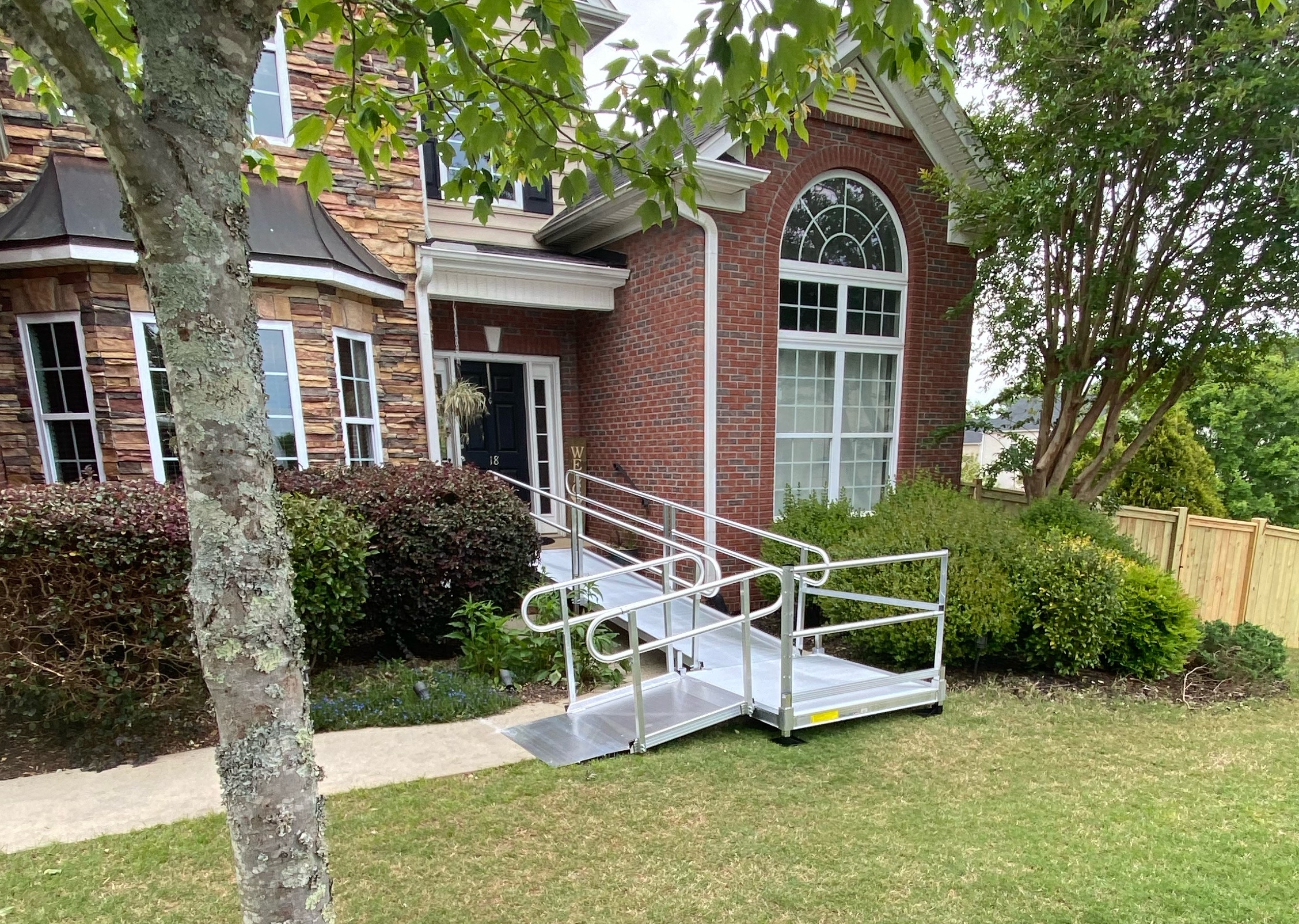
Although finding an aluminum wheelchair ramp online is easy, making the purchase itself is often the only truly convenient part of the process. In performing home evaluations across the country, we’ve seen many “do-it-yourself” ramp installations that were extremely steep, unsteady, or unsafe in a myriad of other ways.
For your safety and peace of mind, consider reaching out to a local, reputable provider of wheelchair ramps that includes professional installation by trained & certified technicians.
If a professional installation sounds like the better and safer route for your needs, Lifeway Mobility offers free, no-obligation consultations and would be happy to answer any questions you may have about wheelchair ramps. Plus, we stand behind every accessibility solution we install, so you’ll never need to worry about the safety or quality of your new ramp!

